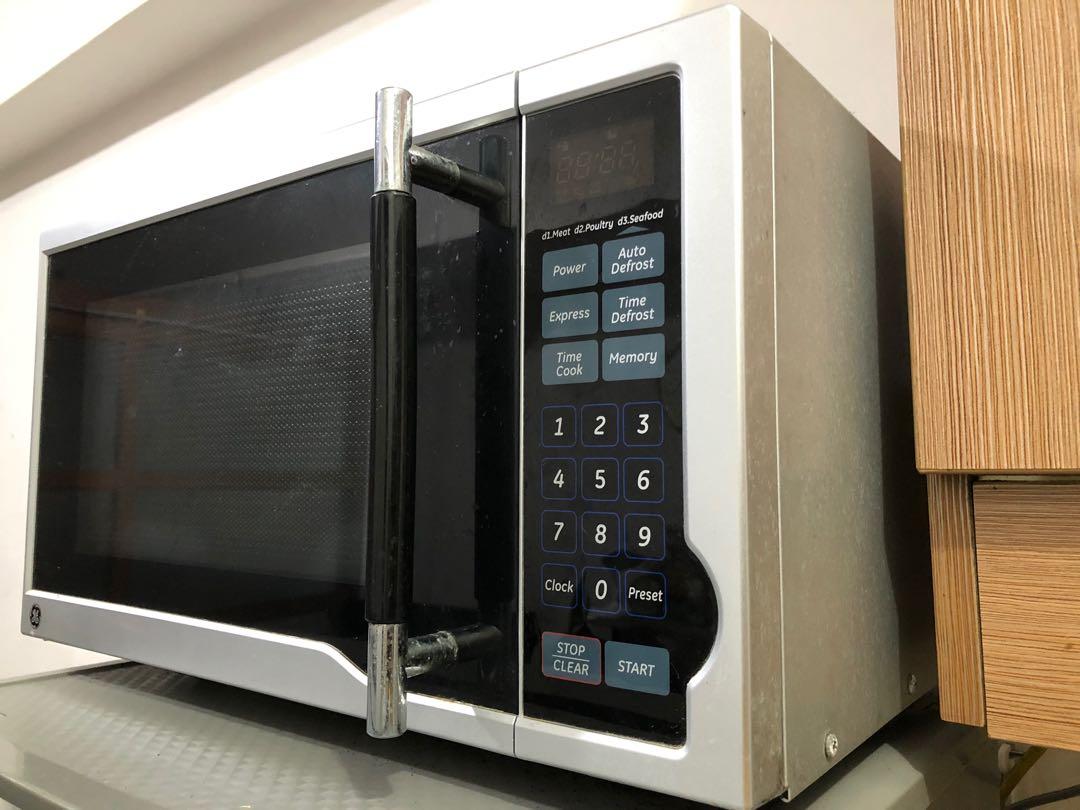When your GE microwave starts acting up, it can throw a wrench into your meal prep routine. The good news is that many common microwave problems can be solved without the need for a service call. In this comprehensive guide from TheKitchenApplianceDad.com, we’ll cover the most common issues you might encounter with your GE microwave and provide step-by-step troubleshooting tips. Whether you’re dealing with a microwave that won’t start, one that isn’t heating properly, or an unresponsive touchpad, we’ve got you covered.
Understanding Your GE Microwave
Before diving into troubleshooting, it’s important to familiarize yourself with the basic components and functions of your GE microwave. This knowledge will help you better diagnose issues and communicate effectively if you need to call in professional help. Your GE microwave consists of several key parts, including the magnetron (which generates the microwaves), the turntable motor, the control panel, and various safety switches.

Safety First
Safety should always be your top priority when attempting any appliance repair. Microwaves use high voltage components that can be dangerous if not handled properly. Always unplug your microwave before attempting any troubleshooting or repairs. If you’re not comfortable with any of the steps below or suspect electrical issues, it’s best to contact a professional technician or refer to GE’s official support resources at GE Appliances Support.
Common GE Microwave Problems and Solutions
Microwave Won’t Start
- Check the Power Source: Ensure the microwave is plugged in and that the outlet is functioning by plugging in another device.
- Inspect the Door: Microwaves have safety switches that prevent them from running if the door is not properly closed. Make sure the door is securely latched.
- Fuse Issues: If your microwave has no signs of life, the internal fuse may have blown. This is a component that should only be replaced by a professional.
Microwave Isn’t Heating
- Inspect the Magnetron: The magnetron could be malfunctioning but replacing it is a job for a technician due to the high voltage involved.
- High Voltage Diode or Capacitor: These components are also involved in heating and can fail. Again, due to the dangers of high voltage, professional assessment is best.
- Check for Error Codes: Modern GE microwaves may display error codes that can help diagnose heating issues. Refer to your user manual or GE’s online resources for information on these codes.
Turntable Not Rotating
- Check the Turntable Motor: The turntable motor could be defective. This is often a simple fix that involves removing the bottom panel of the microwave and replacing the motor.
- Alignment and Cleaning: Sometimes the turntable can get off track or debris can obstruct its movement. Remove the glass tray and clean the turntable and the base thoroughly.
Unresponsive Touchpad
- Clean the Touchpad: Grease and food particles can cause the touchpad to become unresponsive. Gently wipe it down with a damp cloth.
- Check the Ribbon Cable: The connection between the touchpad and the microwave’s control board may be loose or dirty. This can typically be accessed by removing the faceplate of the microwave.
Microwave Runs But Then Stops Unexpectedly
- Overheating: If the microwave runs for a few seconds and then stops, it might be overheating. Ensure the vents are not blocked and that the microwave has enough clearance for airflow.
- Faulty Door Switch: The door switch may be intermittent, signaling the microwave to stop unexpectedly. This part can be tested and replaced if faulty.
Advanced Troubleshooting
If you’ve gone through the basic troubleshooting steps without success, it’s time to delve a bit deeper. These issues can be more complex and may require technical knowledge, special tools, or a professional’s touch:
- Control Board Issues: The microwave’s main control board may be failing. This is a repair that should be handled by a professional due to its complexity.
- Inverter Technology: Some GE microwaves use inverter technology for more precise cooking. If you suspect an inverter issue, it’s best to call a technician.
Preventative Maintenance
Regular maintenance can prevent future issues with your GE microwave:
- Keep it Clean: Regularly cleaning the interior and exterior of your microwave can prevent operational issues.
- Inspect the Door Seal: The seal around the door should be free of debris and in good condition to ensure proper function.
- Use it Properly: Follow the manufacturer’s guidelines for use to avoid placing undue stress on the microwave’s components.
When to Call a Professional
Some issues are beyond the scope of DIY fixes and require professional intervention. If you’re dealing with complex electrical problems, high voltage components, or warranty-covered repairs, it’s time to call in a certified GE appliancetechnician. You can schedule service through GE Appliances by visiting their service request page at GE Appliances Service Request.
Key Takeaways
- Safety First: Always unplug your microwave before troubleshooting and avoid DIY repairs on high voltage components.
- Diagnose Common Problems: Address issues like a microwave that won’t start, isn’t heating, or has a non-rotating turntable with the provided solutions.
- Perform Regular Maintenance: Clean your microwave regularly and follow the manufacturer’s guidelines to prevent future problems.
- Know When to Call for Help: If troubleshooting doesn’t resolve the issue or you encounter complex problems, contact a professional.
By following this guide, you should be able to troubleshoot many of the common problems that can occur with your GE microwave. Remember that regular maintenance can go a long way in preventing issues, and when in doubt, don’t hesitate to seek professional assistance. Visit TheKitchenApplianceDad.com for more tips and guides on keeping your kitchen appliances running smoothly.


